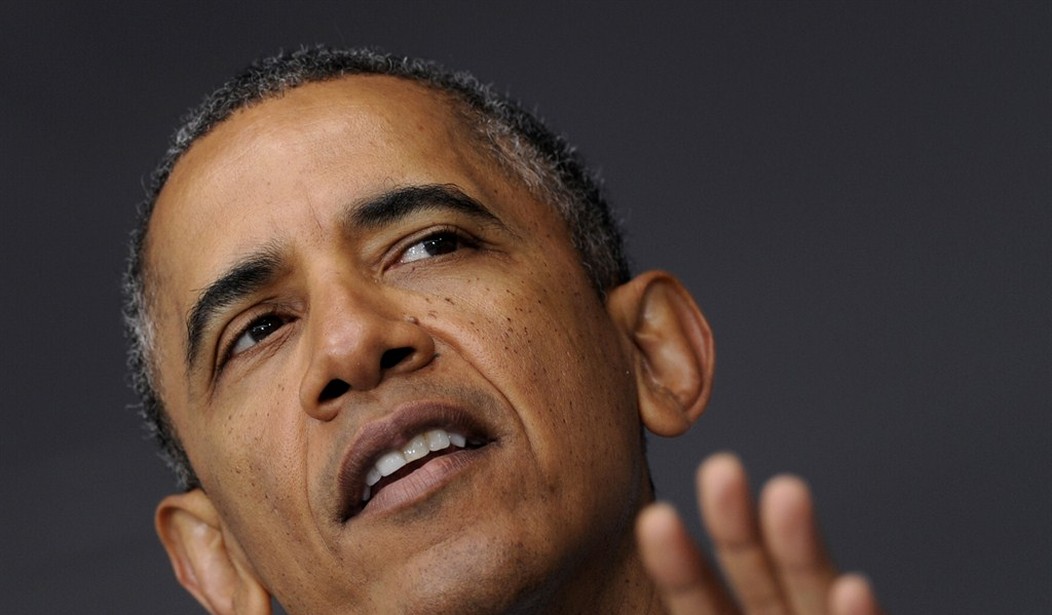WASHINGTON - President Obama announced another foreign policy plan this week, telling our adversaries when and under what circumstances the U.S. will use its forces abroad.
That was the message he sent to the world at West Point Wednesday, laying out a far more narrowly-defined, post-9/11 foreign policy, as the U.S. withdraws from the war in Afghanistan.
We keep hearing that Obama is ending the war in that war-torn nation, but of course, we are doing no such thing. We are ending our combat role there, but the war goes on, and will likely widen in the foreseeable future as long as the Taliban believes it can win power by killing enough of the Afghan population.
But Obama's address set forth a much more troubling, constrained set of policy rules that the U.S. will follow from here on out between military interventionism and avoiding "foreign entanglements."
As he has in other speeches, he set up imaginary straw men to ridicule those who "think military intervention is the only way for America to avoid looking weak." They were his critics who, he said, (he certainly had Sen. John McCain in mind) want to put U.S. "troops into the middle of [Syria's] increasingly sectarian civil war." People who, he added, are calling for "invading every country that harbors terrorist networks."
But his foreign policy and national security critics are calling for no such thing.
They are saying that there are times when, as in Syria, we can use our substantial resources, weapons and other military assistance, to deal with terrorist networks who -- contrary to Obama's claims that he has them "on the run" -- have grown much more dangerous than they were before 9/11.
Recommended
McCain has said in numerous speeches that we have to set forth a strategic, muscular set of policies that has the ability to respond when help is needed. Not with military forces on the ground, but with weaponry, and air power in some cases -- as when Syrian dictator Bashar al-Assad was bombing thousands of innocent civilians to put down the rebellion, as his administration looked the other way.
Obama was justifiably outraged when Assad dropped poison gas bombs on his country's civilian population in key cities. That led Secretary of State John Kerry on a wild goose chase, proposed by Russian President Vladimir Putin, into multilateral negotiations to locate and destroy Syria's poison gas arsenal.
While the international community was focused on a search for the deadly arsenals, Assad resumed bombing the Syrian people with impunity. An unknown quantity of Assad's poison gas is still hidden in Syria to this day.
Where was the outrage? We heard it only on the floor of the Senate where McCain and his colleagues kept up a steady drumbeat of criticism of the administration's refusal to act in the face of Assad's war crimes.
What is the difference between people killed by poison gas or slaughtered by barrel bombs? Either way, they kill.
But this week, the president was attacking those who think there are times when America is called upon to act to save innocent people from being slaughtered.
Obama dismisses these critics as people who think that "working through international institutions... or respecting international law is a sign of weakness."
From now on, Obama told our enemies, the U.S. was going to act alone only in a very narrow range of "core interests." Trade issues, for example. And in situations when "crises arise that stir our conscience or push the world in a more dangerous direction, we should not go it alone."
But there may be times, as there have been in the past, when no one else can or will act to help defenseless and vulnerable people threatened by genocide or by military invasion or some other unseen threats. Publicly declaring binding rules of engagement in each every future crisis before it happens is a very foolish and dangerous policy.
But Obama sees nothing wrong in telling the Taliban terrorist leaders when he will begin winding down our role in Afghanistan and then when we will pack up and leave. As the deadlines approached, the Taliban, al-Qaeda and their accomplices have been encouraged to step up their attacks in Kabul, Iraq and elsewhere in the Middle East.
Worse, in his policy-setting address, Obama took his rules of engagement one giant step further, telling U.S. adversaries what we would or wouldn't do in future crises.
But why needlessly tie America's hands at this juncture? Our allies are losing confidence in U.S. resolve in the face of growing challenges around the world, and Democrats, too, are privately grumbling about the message Obama's retrenchment sends to friends and foes alike.
Russia has annexed Ukraine's Crimea peninsula with little more than a soft tap on the wrist. Obama's impotent sanctions did not hurt Putin or his economy. If anything, they have emboldened Moscow and pro-Russian forces in Eastern Ukraine where more government buildings have been seized.
Putin, for all his bluff and bluster, has out-maneuvered Obama and Kerry every step of the way in the crisis over Ukraine. He senses Obama is weak and indecisive and that has only embolden him to take bigger risks.
He may talk about "peace" in public, but what he really means is a bigger "piece" of Ukraine and other pieces of the former Soviet Union.
He is not only brazenly orchestrating his new challenge in Eastern Ukraine, but shook European allies by signing a lucrative natural gas deal with China that made Obama's sanctions look like child's play.
In the Middle East, U.S. diplomacy is a mess. Relations with Saudi Arabia are, well, not so good. Kerry's efforts at reviving peace talks between Israel and Palestine have collapsed. Europe's confidence in Obama's leadership has been shaken by his six year failure to get our economy up and running at full throttle.
In foreign policy, weakness begets more weakness, and that's a bad place for us to be in a very dangerous world.

























Join the conversation as a VIP Member